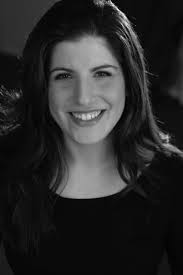 Novelist and short story writer Rachel Sherman talks to us about literary failures, humor, and multi-generational lullabies.
Novelist and short story writer Rachel Sherman talks to us about literary failures, humor, and multi-generational lullabies.
Your first book, The First Hurt, was a story collection and your second, Living Room, a novel. What were the challenges of moving from short form to the novel? Do you feel the process unearthed any hard-won insights regarding form or craft? I do. Forever I thought of the novel as a mountain I would never climb. Or like the prospect of becoming a runner: there are some things that only other people do. Or perhaps like owning a dog. To write a novel felt as impossible as running on a mountain trail, leash in my hand, plastic dog poop bag in my pocket, panting. The difference between being a writer and being talented is doing the work.
Can you tell us something about a recent literary failure? What happened the last time you thought, Nope, not this one! I can think of two. One was a story that ended up being too close to me to tell yet with the numbness I have to feel in order for it to read true on the page, and the other was a story in which my voice was making me sick.
Your work is full of dark, unsentimental, laser-sharp humor. How did you come by the funny? I never consciously set out to be funny. In my mind, the sadness and the beauty of life are closely related. Many moments in my fiction focus on both. I actually often feel like I’m too maudlin, and not funny at all. I don’t know where that leaves me in terms of this question. But in my life I like to laugh a lot.
Have you tried to dissect literary humor? Does it help to understand the anatomy of humor, as one might diagram plot, or is that always the death of funny? I definitely think it’s the death. I don’t think outside of the moment when I am actually writing. I don’t know if it’s Zen, but when I write is one of the only times I am able to completely lose myself. I am not conscious of time, or the world outside the one in my mind. What comes out is not always good, but when I am in this headspace I think that my ideas, at least, have the potential to eventually become something worth reading. That said, I have never referred to anything I’ve done as “zen,” and I’ve never used the word “headspace” before this interview.
What’s the last book (or song/artist/work) you fell for hard? I don’t think of myself as a music person. But I think that’s because I don’t know much about it; I feel like the music world is too vast to get a hold of. It feels intimidating. My brother is a successful musician, but he doesn’t read. All the things there are to say about that are for a very different interview… I love to dance, so most of the music I listen to is the kind you can
dance to. That said, someone recently played me a song by Siberia called Heavy Rope. It is inspiring and heartbreaking and familiar and comforting. When I hear it, I am overwhelmed with images that feel like they could only have come from a dream.
Where do you most feel like a “we”? When I’m with my daughter, of course. We were a we to begin with. I can’t imagine this changing, although I’m sure it will. She is only 4, so she is still my girl. We look in the mirror together and brush our teeth each morning. We sing the same song – a song my own mother sang to me – before we go to bed.
